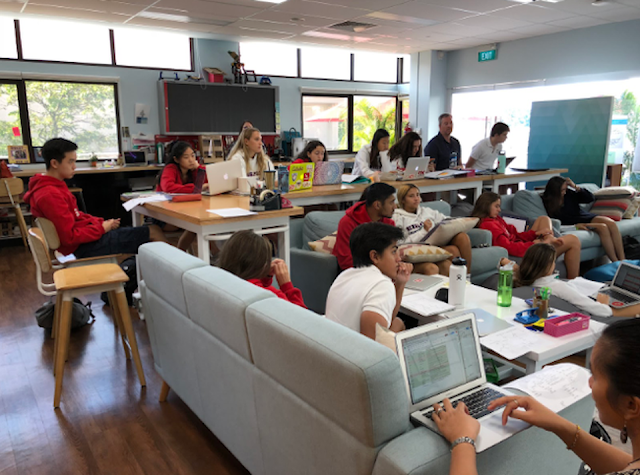Higher Education for the Digital Economy: The case for Public-Private Collaboration
The digital economy demands a new form of higher education. This is not just about teaching with or about technology. This is about changing the whole paradigm of how higher education should be done.
This is a common claim, often heard at various innovation conferences. The substance of it is, however, unclear. In fact, those who make the claim often portray higher education as a domain stuck in the middle ages, detached from real life and obsessed with texts and received wisdom - and the digital being the route to give it a 21st-century refresh. This view is eminently false as it simplifies and decontextualises - and misses out all that has happened in higher ed in the last hundred and twenty years.
The key change that happened in Higher Education over this period is the rise of research. This was derived from the enlightenment values and scientific frame of mind that came of age in the nineteenth century. This became a central organising theme of the modern university, at least partly as a response to the information overload, the proliferation of newspapers and institutionalisation of gossip in the age of print. Far from confining themselves to the received ancient wisdom, universities become places to filter the noise arising out of cacophonous media, partisan politics and the unresolved frontiers of science and faith.
Universities may be seen as bureaucratic institutions, but so are modern corporations. They may be seen as slow, but they operate with an increasing burden of accountability and have to justify every dollar of public money they spend, and not with impunity to blow away investment funds in search of disruption. Their democratic structures - in contrast to the founder-as-God creed of start-ups - make them justify every move they make a thousand time over, but when the students' lives are on the line, that approach may actually be infinitely preferable.
However, the digital economy, a combination of the emergence of new technologies, changes at work, global labour markets and integrated value chains, along with its own forms of politics, have opened up new possibilities. Higher education needs new spaces of experimentation and engagement, within the established structures of accountability. It needs risk-based funding, an inclusive global space (not so easily obtained within nationally funded and prioritised university precincts) and demand-driven adjustment of capacity, which privately funded providers can bring to them. During the industrial revolution, coffee shops disseminated knowledge among laypeople; as the digital economy unfolds, public-private spaces of higher education may perform at least part of the role.
It is in this space of collaboration between private innovators and public universities the best hopes of creating a new educational form fit for the digital economy lie. It is common to see this space as one of conflict of values and a lack of balance. The private providers are far more here-and-now, focused on practical work and employment prospects of their graduates, whereas universities, it is assumed, may take a longer-term view. Besides, universities often have a monopoly and near-monopoly over degrees, the recognition of education attained, and this gives them the power to privilege their agenda over and above any private partner they work with.
However, such a view overlooks the emergent possibilities in the space, new conversations, primarily between challenger universities and entrepreneurial 'higher education providers' with global reach and expansive intent. These conversations focus on complementarities rather than conflict and seek to combine the research ethos and practical engagement, overcoming the false dichotomy. These models re-frame the degrees as recognition of competencies, restoring the balance not just of the powers of the providers but also between accountability and innovation, between forward-thinking and here-and-now.
To imagine what such partnerships can do, I shall turn to an example coming out of public British universities. Professor Alan W Brown, of Exeter Business School, speaks about a new form of business school: The business school as an immersive experience. His model imagines business school as an iterative exercise of four steps: Research led education, interactive investigation, business-based demonstration, followed by rapid prototyping sessions. While this model is emerging in the margins of the public universities (and will remain there), such models will drive the public-private partnerships of the sort I am arguing for.
It is in these forms of innovation, played out in collaborative spaces of private enterprise with public accountability, that the educational models fit for digital economy would emerge. It may sound unglamourous - these partnerships existed since the very start of public higher education - but they are far more real than 'AI will sort out everything' claims. In them, therefore, I trust.


Comments